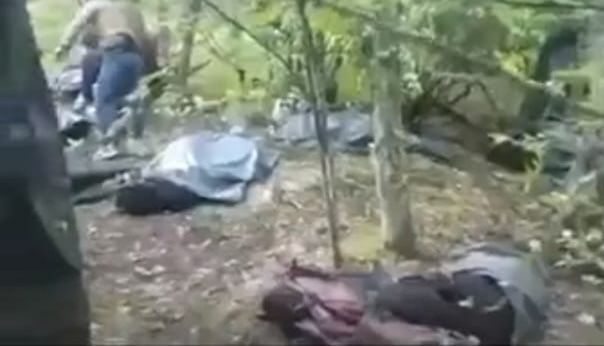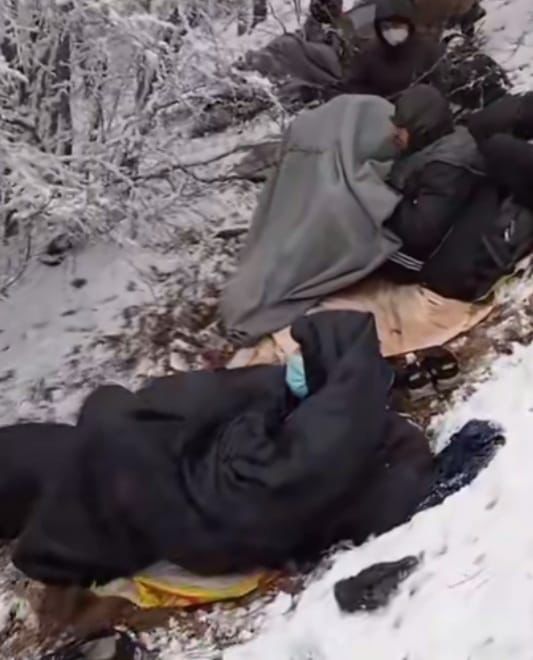Afghan refugees who fled Taliban and Ukraine war fear UK deportation to Rwanda
Exclusive: Having fled persecution in their home country, Afghan refugees plead with British ministers to show them the same mercy given to Ukrainians
Hope is waning for Nader*, a professional Afghan mixed martial arts fighter after the UK government announced it would press on with its Rwanda plan despite ongoing court action to stop the deportation flights.
He, and 46 refugees from Somalia, Iraq, Afghanistan and elsewhere, were among nearly 2,600 people who crossed the English Channel in May on inflatable boats.
A month before the Afghan government collapsed, he says, there was growing fear and insecurity in Kabul which prompted him to secure a Ukrainian visa.
After the Taliban seized control of Kabul in August 2021, Nader, 30, from the Hazara community, fled to the port city of Odesa in southern Ukraine with his wife where they lived for nine months. Under Taliban rule, the Hazaras face discrimination and persecution due to their ethnic and religious identity, with massacres in Bamyan and Mazar-i-sharif.
Russia’s invasion of Ukraine on 24 February forced Nader to leave the port city for Poland. From there he travelled to Germany and France before arriving in the UK.

With a heavily pregnant wife, due to give birth, he says Rwanda is not an option if the government decided to press ahead with its plans to process asylum seekers there. She remains in France, while he says he did not qualify for the Homes for Ukraine scheme, which is only open to Ukrainian nationals.
“I escaped from two wars - Afghanistan and Ukraine - and don’t want more uncertainty,” Nader told The Independent from Kent where he is in hiding. His family scattered across the UK – some who arrived more than 20 years ago after the UK and US military involvement in Afghanistan – are his only support.
Nearly 10,000 Afghans entered Poland from Ukraine after Russia invaded Ukraine, according to Nigara Mirdad, political counsellor at the Afghanistan embassy in Poland. Ms Mirdad said 5000 Afghans arrived in Ukraine after 15 August, last year.
Many who came via unofficial routes told The Independent their journeys to England – on foot, bus, trains and the sea – are riddled with uncertainty, cruelty, injustice, death threats and disappointment.
When Kabul fell to the Taliban, life for Fawad, who worked for the Afghan special forces for nearly a decade and received military training from the US and UK forces, lost all meaning.

Following Nato’s retreat last August, Afghans who trained or worked with Nato forces, like Fawad, were in danger of being killed.
But Fawad, 36, believed that he did not automatically qualify for the Afghan Relocations and Assistance Policy (ARAP) scheme, launched by the UK Home Office and Defence Ministry to relocate those who previously worked with Nato forces and whose lives were in imminent danger, so he did not apply.
Navigating the scheme has not proven easy, especially for Afghans whose first language is not English.
Given Fawad’s circumstances, he would have to apply under ARAP’s category 4 - which are processed on a case-by-case basis.
“The United Kingdom was one of the biggest donors to my country’s military institutions. It has more responsibility to take care of us,” Fawad said.
Since the ARAP scheme started, 9,500 people and their dependents have been relocated to the UK, a spokesperson from the UK defence ministry told The Independent.
While it cannot comment on individual cases, a UK defence ministry spokesperson said: “The Afghan relocation scheme remains open for applications and is not time-limited, because we are determined to make sure those who apply and are eligible can come here.”
Fawad fled Kabul, leaving his wife, three daughters and a son behind and in hiding. “Every night I think about them and I cry,” he told The Independent. He said his brother was badly beaten up by the Taliban.
Fawad’s journey to the UK took him nearly seven months and cost him £7,564 in transport costs alone. Some days he slept rough. On his way out from Kabul, he heard that 26 military officers, including some of his colleagues trying to flee, were captured by the Taliban at checkpoints. Their whereabouts are still unknown.
His journey spanned several countries including Pakistan, Iran and Turkey where he paid smugglers £5,124 to get him to Italy.
Italian border police took him to a camp, where he stayed for two weeks before travelling to Calais where he paid £1,708 to cross the English Channel on a boat, arriving in the UK in mid-February. Escaping the Taliban to pass through the Channel was like dodging death twice, he told The Independent.
Fawad chose the UK because he has family support but he is anxious about what comes next as the legality of the Rwanda policy is debated.
Fawad called on the government to welcome Afghans in the same way they have Ukrainians fleeing the war. “It’s unfair,” he says.
“I feel frustration, my thoughts are on my family in Afghanistan and my eyes on Rwanda,” he says, adding that Rwanda makes him feel suicidal.
“I lost everything. I never thought, after 10 years working for my country, I would have to leave my birthplace in this way.”

Rahimi, 22, was a contractor for Nato troops who sourced US military equipment and clothing from formerly US-held Bagram air base and sold it in Kabul’s Bush market – named after the former US president George W. Bush. Since August, the market has been rechristened ‘Mujahideen bazaar’.
In the days before Kabul fell to the Taliban, Rahimi got a visa to Iran and travelled to Mashhad, where he stayed for a month. His journey is not dissimilar to Fawad’s. After several failed attempts to cross the English channel, he says, from Paris, he used a truck to travel to the UK and paid £430. In total, he spent roughly £8000.
On 7 February 2022, Rahimi reached the UK and travelled to London to claim asylum.
“Do not put us between two hells - Rwanda and the Taliban,” he says, urging the UK government to support Afghans, as they have the Ukrainian people.
“Better to face prosecution by the Taliban than go to Rwanda,” he adds.
Downing Street has said the government will do “whatever it takes” to ensure deportation flights to Rwanda go ahead.
A spokesman for the prime minister said the government would consider a ruling of the European Court of Human Rights, which halted flights to Rwanda last month, but that “all options are on the table”.
Several asylum seekers, the Public and Commercial Services union (PCS) and charities Care4Calais, Detention Action and Asylum Aid have brought legal action against the Rwanda plan with a hearing taking place this week.
After the latest hearing on Tuesday, the government said: “Rwanda is a safe and secure country with a track record of supporting asylum seekers.
“We remain committed to delivering this policy to break the business model of criminal gangs and save lives.”
Abu Muslim Shirzad contributed to this report.
*Names have been changed to protect identities
Join our commenting forum
Join thought-provoking conversations, follow other Independent readers and see their replies
Comments
Bookmark popover
Removed from bookmarks